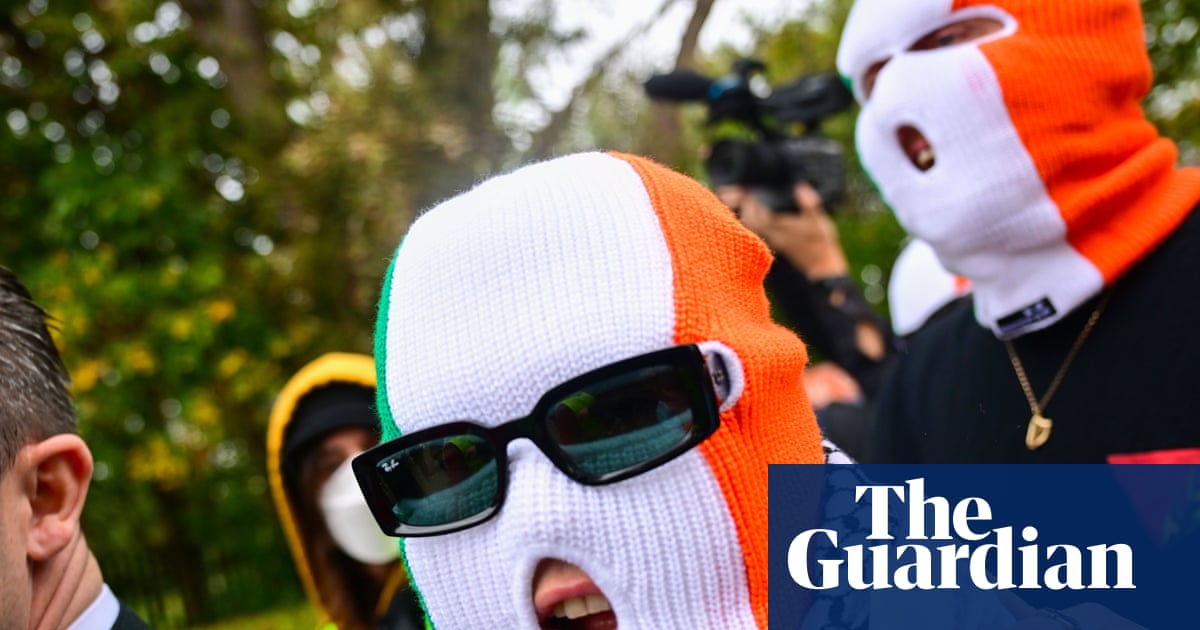The recent dismissal of terrorism charges against Liam Óg Ó hAnnaidh, a rapper from the Irish hip-hop group Kneecap, has sent ripples through the music and political worlds. The case, centered around the alleged display of a Hezbollah flag at a London gig, was thrown out due to a legal technicality, raising questions about the application of terrorism laws and the freedom of artistic expression. This article delves into the details of the case, its implications for Kneecap, and the broader context of political activism and artistic expression.
The dismissal of the case is a significant victory for Kneecap, a group known for their politically charged lyrics and unapologetic stance on issues such as Irish identity, social justice, and the Israeli-Palestinian conflict. It also highlights the complexities of balancing national security concerns with the protection of civil liberties. This article will explore the key events leading to the dismissal, the arguments presented by both the prosecution and the defense, and the reactions from various political figures and supporters.
Liam Óg Ó hAnnaidh, a member of the Belfast-based rap group Kneecap, faced terrorism charges following an incident at the O2 Forum in Kentish Town, North London. The charges stemmed from allegations that he displayed a Hezbollah flag during a performance in November. This act led to his arrest and subsequent legal proceedings, which culminated in a dramatic court hearing at Woolwich Crown Court.
The case quickly garnered attention due to its intersection of music, politics, and law. Supporters of Kneecap viewed the charges as an attempt to silence the group’s political expression, while critics argued that displaying a flag associated with a proscribed organization could incite violence and promote terrorism. The legal proceedings brought these conflicting viewpoints into sharp focus, setting the stage for a contentious trial.
The core of the legal challenge revolved around whether the Attorney General had properly authorized the charges against Ó hAnnaidh. Brenda Campbell KC, leading the defense team, argued that the necessary consent from the Attorney General was not obtained before the charges were brought on May 21. This procedural oversight, according to the defense, rendered the charges unlawful and invalid.
Chief Magistrate Paul Goldspring sided with the defense, ruling that the prosecution had failed to meet the statutory requirements for initiating the case. He emphasized that the consent of both the Director of Public Prosecutions (DPP) and the Attorney General (AG) was required within the six-month statutory time limit. Goldspring concluded that the charge against the 27-year-old musician was “unlawful” and “null,” effectively dismissing the case.
The courtroom erupted in cheers when the chief magistrate announced his judgment. Supporters of Ó hAnnaidh, who had gathered both inside and outside the court, celebrated the decision as a victory for freedom of expression. Ó hAnnaidh himself gave a thumbs-up to his supporters, signaling his relief and gratitude.
West Belfast MP Paul Maskey, who attended the court hearing, hailed the decision as the right one. He stated, “Kneecap have bravely and unapologetically used their platform around the world to call out Israel’s genocide and the complicity of western governments.” Northern Ireland’s First Minister, Michelle O’Neill, also welcomed the decision, asserting that the charges were a “calculated attempt to silence those who stand up and speak out against the Israeli genocide in Gaza.”
The Crown Prosecution Service (CPS) has indicated that it is “reviewing the decision of the court carefully” and may consider an appeal. This leaves the door open for further legal challenges, and the case could potentially return to the courts in the future. However, for now, Kneecap and their supporters are celebrating what they see as a significant victory against political oppression.
Daniel Lambert, Kneecap’s manager, expressed his jubilation on social media, stating, “We have won!!!!!! Liam Og is a free man… Political policing has failed. Kneecap is on the right side of history. Britain is not. Free Palestine.” These sentiments reflect the broader narrative that the case was politically motivated and aimed at silencing dissent.
Following the dismissal of the charges, Ó hAnnaidh addressed his supporters outside the court, emphasizing that the case was never about him personally but about the right to speak out against injustice. He stated, “This entire process was never about me… It was always about Gaza, about what happens if you dare to speak up.”
Ó hAnnaidh’s remarks underscore Kneecap’s commitment to using their music and platform to raise awareness about political issues, particularly the Israeli-Palestinian conflict. The group has consistently used their performances to advocate for Palestinian rights and to criticize what they see as the oppressive policies of the British government. The dismissal of the terrorism charges is likely to embolden them to continue their activism.
The dismissal of terrorism charges against Kneecap rapper Liam Óg Ó hAnnaidh marks a pivotal moment in the ongoing debate about artistic freedom, political expression, and the application of terrorism laws. The case, which centered on a legal technicality, has brought attention to the complexities of balancing national security concerns with the protection of civil liberties.
For Kneecap, the outcome represents a significant victory. The group, known for their politically charged lyrics and unwavering stance on social justice issues, can now continue their work without the shadow of terrorism charges hanging over them. The broader implications of the case remain to be seen, particularly if the Crown Prosecution Service decides to appeal. However, for now, Kneecap and their supporters are celebrating what they view as a triumph against political oppression and a reaffirmation of the right to speak out against injustice.

Leave a Reply